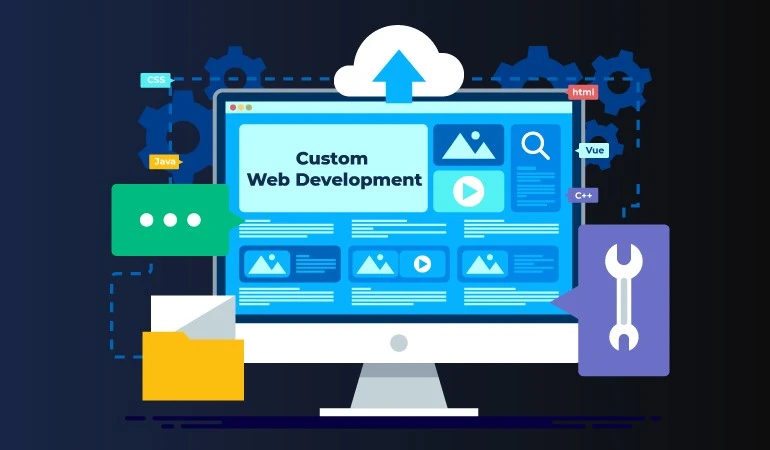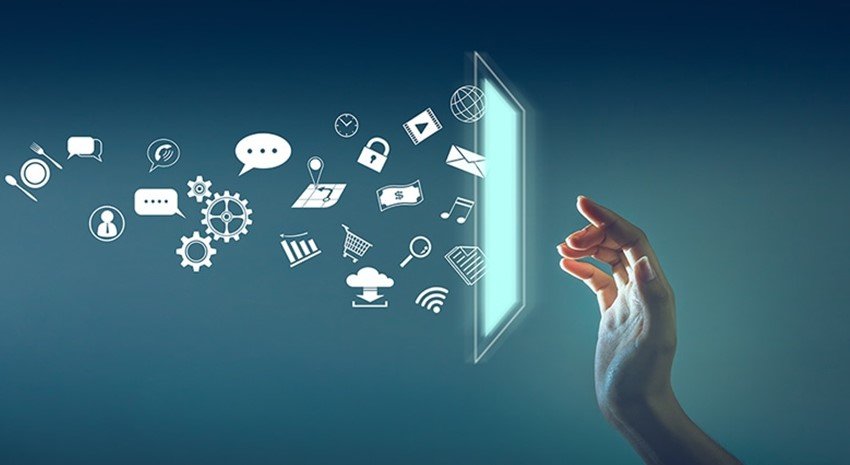

The Role of AI in Modern Web Development
Artificial Intelligence (AI) has become an integral part of many industries, and web development is no exception. As technology advances, AI continues to revolutionize how websites are designed, developed, and maintained. In this blog, we’ll explore the various ways AI is transforming modern web development, making processes more efficient, enhancing user experiences, and driving innovation.
1. Automated Code Generation
One of the most significant impacts of AI on web development is the ability to automate code generation. AI-powered tools can now write code based on predefined parameters and patterns. These tools analyze existing codebases, understand the context, and generate new code snippets or even complete modules. This automation speeds up the development process, reduces human error, and allows developers to focus on more complex tasks that require creativity and critical thinking.
Key Tools:
- GitHub Copilot: An AI pair programmer that helps developers by suggesting code completions and entire functions in real-time.
- DeepCode: An AI-driven code review tool that identifies bugs and suggests improvements by learning from millions of open-source projects.
2. Enhanced User Experience through Personalization
AI enables highly personalized user experiences by analyzing user behavior, preferences, and interactions. By leveraging machine learning algorithms, websites can deliver tailored content, product recommendations, and personalized interfaces. This level of customization enhances user engagement and satisfaction, leading to higher conversion rates.
Key Techniques:
- Recommendation Engines: AI algorithms analyze user data to suggest products, articles, or other content that align with user interests.
- Dynamic Content Delivery: Websites dynamically adjust content based on real-time user interactions, creating a more relevant and engaging experience.
3. Improved Search Functionality
AI enhances search functionality on websites by implementing natural language processing (NLP) and machine learning techniques. These advancements enable more accurate and context-aware search results, improving the overall user experience. AI-powered search engines can understand user intent, handle misspellings, and provide relevant results quickly.
Key Tools:
- ElasticSearch with AI plugins: Enhances search capabilities with features like autocomplete, spell check, and synonym recognition.
- Algolia: A powerful search-as-a-service solution that leverages AI to provide lightning-fast and relevant search results.
4. AI-Powered Chatbots and Virtual Assistants
Chatbots and virtual assistants, powered by AI, are becoming standard features on modern websites. These AI-driven tools provide instant customer support, answer frequently asked questions, and guide users through the site. They significantly enhance customer service by offering 24/7 availability and quick response times, reducing the workload on human support teams.
Key Examples:
- Intercom: An AI chatbot platform that integrates seamlessly with websites to provide real-time customer support and engagement.
- Dialogflow: A natural language understanding platform that helps developers design and integrate conversational user interfaces into web applications.
5. SEO Optimization
AI is revolutionizing search engine optimization (SEO) by automating and optimizing various tasks. AI tools can analyze large datasets to identify trends, keywords, and backlink opportunities. They can also generate SEO-friendly content, suggest improvements, and monitor site performance in real-time.
Key Tools:
- BrightEdge: An AI-driven SEO platform that provides insights and recommendations to improve search rankings.
- MarketMuse: Uses AI to analyze content and suggest improvements to enhance SEO performance and content quality.
6. Enhanced Security
AI plays a crucial role in enhancing website security by detecting and preventing threats in real-time. Machine learning algorithms can identify unusual patterns and behaviors, flagging potential security breaches before they occur. This proactive approach helps protect sensitive data and maintain user trust.
Key Tools:
- Darktrace: An AI cybersecurity platform that uses machine learning to detect and respond to threats in real-time.
- Reblaze: An AI-powered web security platform that provides comprehensive protection against DDoS attacks, bot traffic, and other threats.
7. Development of Progressive Web Apps (PWAs)
AI is also facilitating the development of Progressive Web Apps (PWAs), which combine the best features of web and mobile applications. AI-driven tools can optimize PWAs for better performance, offline capabilities, and seamless user experiences across different devices.
Key Benefits:
- Improved Performance: AI optimizes loading times and resource usage, ensuring a smooth user experience.
- Enhanced Offline Capabilities: AI helps in caching and serving content offline, making PWAs more reliable and user-friendly.
Conclusion
The integration of AI into modern web development is driving significant advancements, making processes more efficient and enhancing user experiences. From automated code generation and personalized content delivery to improved search functionality and enhanced security, AI is reshaping the landscape of web development. As AI technology continues to evolve, its role in web development will only become more prominent, leading to even more innovative and intelligent web solutions.
At CEAWebSystems, we leverage the power of AI to deliver cutting-edge web development solutions that meet the unique needs of our clients. By staying at the forefront of technological advancements, we ensure that our clients benefit from the latest innovations in AI and web development. Embrace the future of web development with CEAWebSystems and experience the transformative impact of AI on your digital projects.



